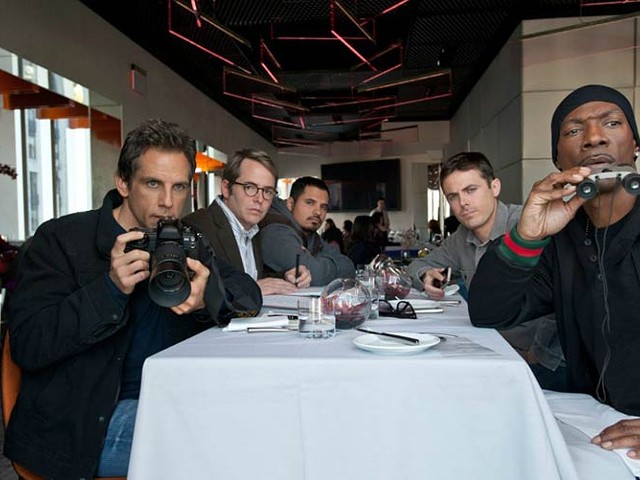Reading some of the reviews of Roland Emmerich's Anonymous, it's clear that the German director's track record (Independence Day, Godzilla, 2012) of blowing up cities and, well, whole planets, has made him hard to take seriously. For the film's fans, there is disbelief that the man who could be viewed as the Irwin Allen of the new millennium was able to deliver an intelligent and entertaining historical drama. For those less impressed with Anonymous, there's genuine scorn toward the underlying premise of his film: that Shakespeare didn't actually write the plays credited to him.
Emmerich and his screenwriter John Orloff dropped in on a trio of universities around the country — Ann Arbor's University of Michigan among them — and discussed their film with college English classes before publicly debating whether Edward de Vere, the Earl of Oxford or Willie S., the man from Stratford, deserved to be called the Bard. The reception wasn't always a welcome one.
Metro Times: I heard that you had quite a row at the Berkeley presentation the other night?
Roland Emmerich: Professor Nelson got quite personal. He used the beginning of the debate to make a speech that was quite offensive. But we stayed calm. And I think the audience made up their mind.
MT: Why are some people so impassioned about this?
Emmerich: People who are scholars, who have devoted their lives to the man from Stratford, who have written books that made money — Shakespeare sells very well — their industry is threatened. They've boxed themselves into a corner where they can't consider anything else. I'm just a storyteller and I think it's a fascinating story.
MT: You're pretty unkind to Shakespeare, depicting him as an opportunistic drunk. It's like you're baiting the Stratfordians.
John Orloff: Absolutely! At a certain point in the development of the movie, we realized we were creating a Shakespearean drama, in the sense that we're dealing with these Shakespearean themes of uncrowned kings and court intrigue. And you have to have a fool. So Shakespeare is our fool. But if you ask Rafe, the actor who plays him, he likes to say that he's the hero of the movie because if he didn't do what he did we wouldn't have his plays today.
MT: Roland, at the Toronto Film Festival you said that you wanted to take your name off the film and release it anonymously. Why?
Emmerich: Because I knew my name would belittle it because of the other films I've done. I told Sony Pictures that my name will probably be the biggest negative. They said that they thought it was the exact opposite of that.
MT: When you read critics who say they're surprised how entertaining it is, do you feel vindicated or insulted? Or do you not care?
Emmerich: First of all, I don't read the critics. But the word comes back to me. I guess I'm a little annoyed by it. I mean, are all my films all that lousy? But I've long wanted to do a movie like this. So, when people say positive things I feel vindicated too. It's a mixed bag.
MT: John, when it comes to film, are fiction and speculation different?
Orloff: I think they are different. I am pretty convinced that Shakespeare did not write the plays. Based on the evidence we have today I'm close to a 100 percent sure. Is there a possibility that one day we'll actually find a letter written by William Shakespeare or a play in his own handwriting? Yeah, maybe. And if we had that now there'd be no authorship debate.





